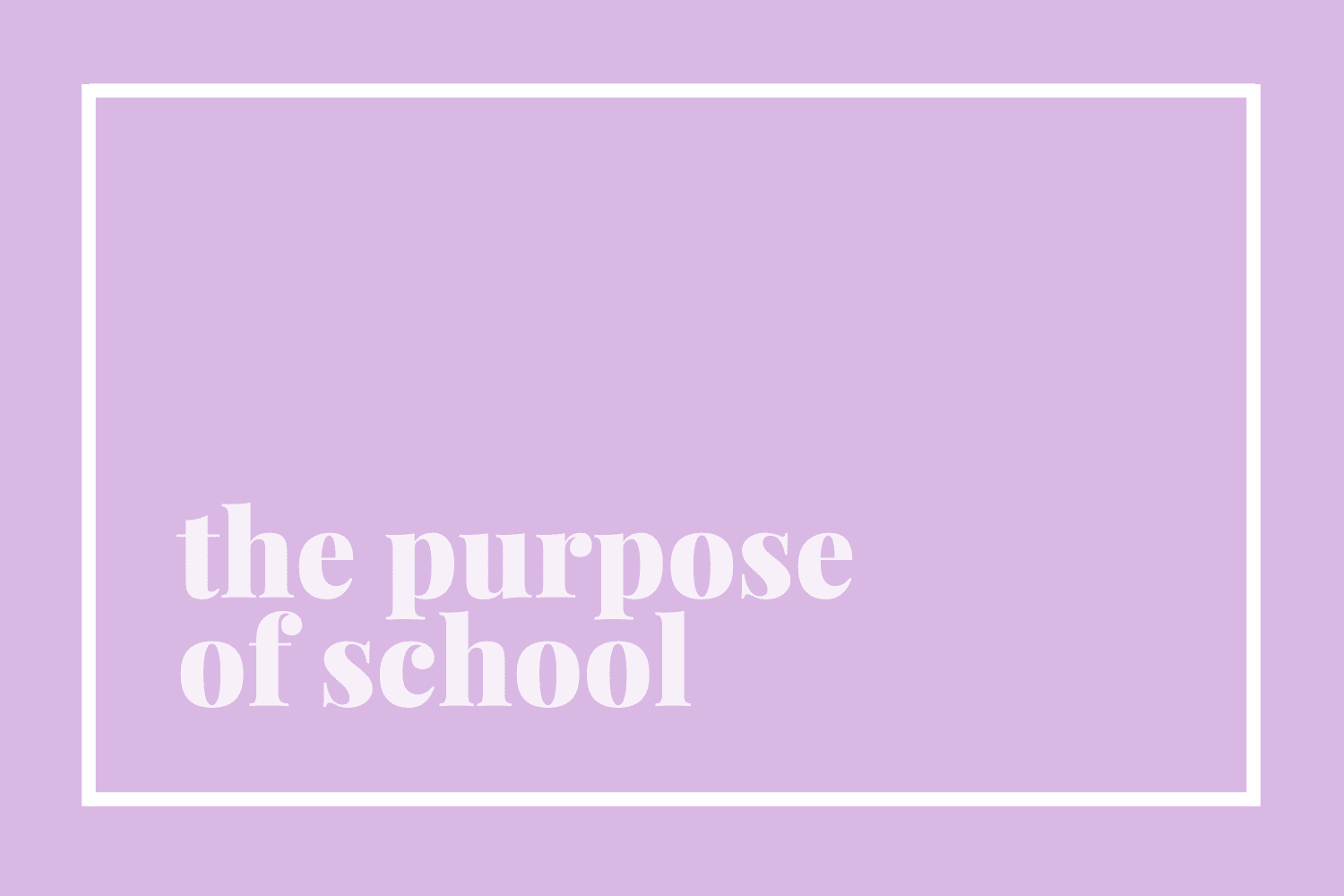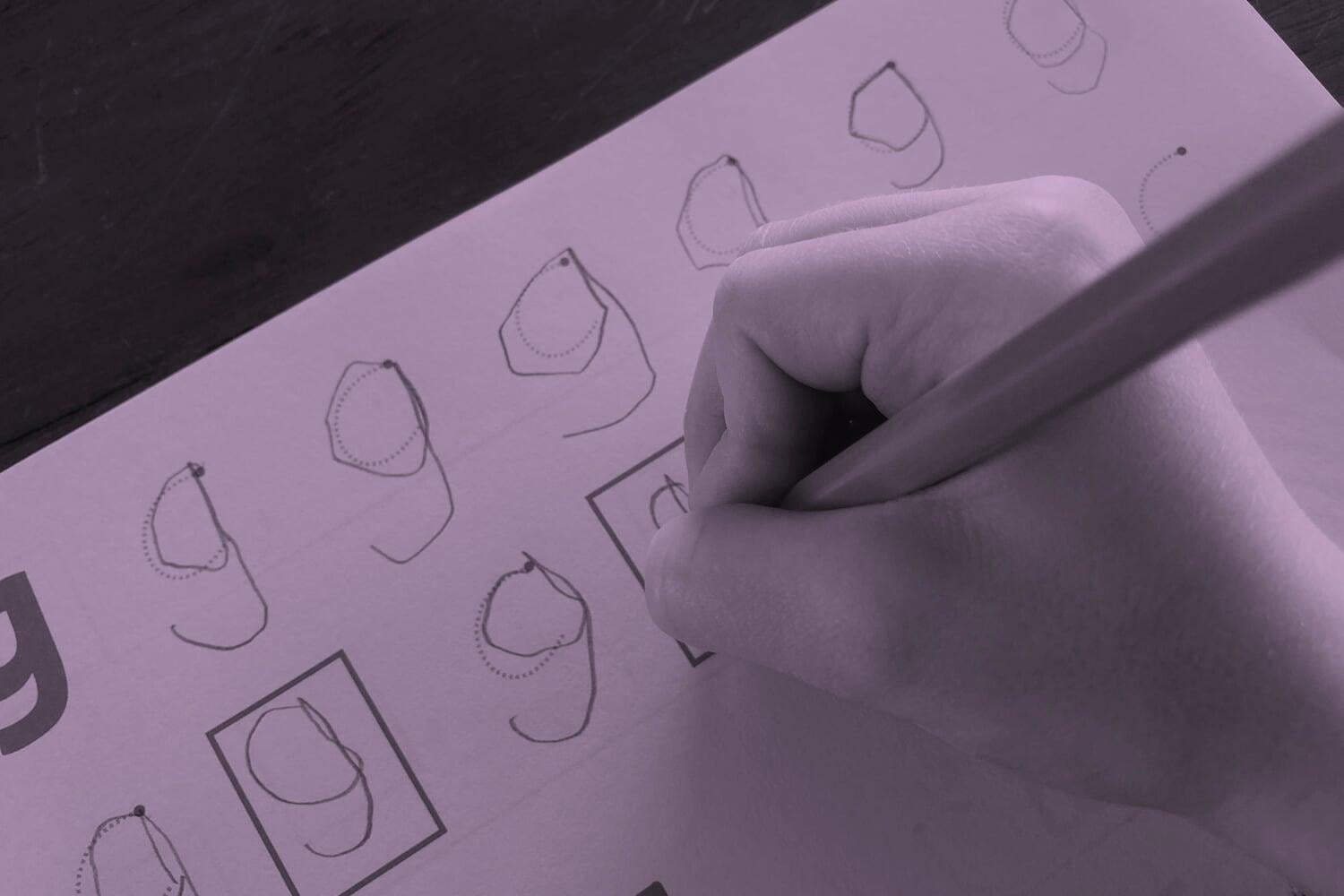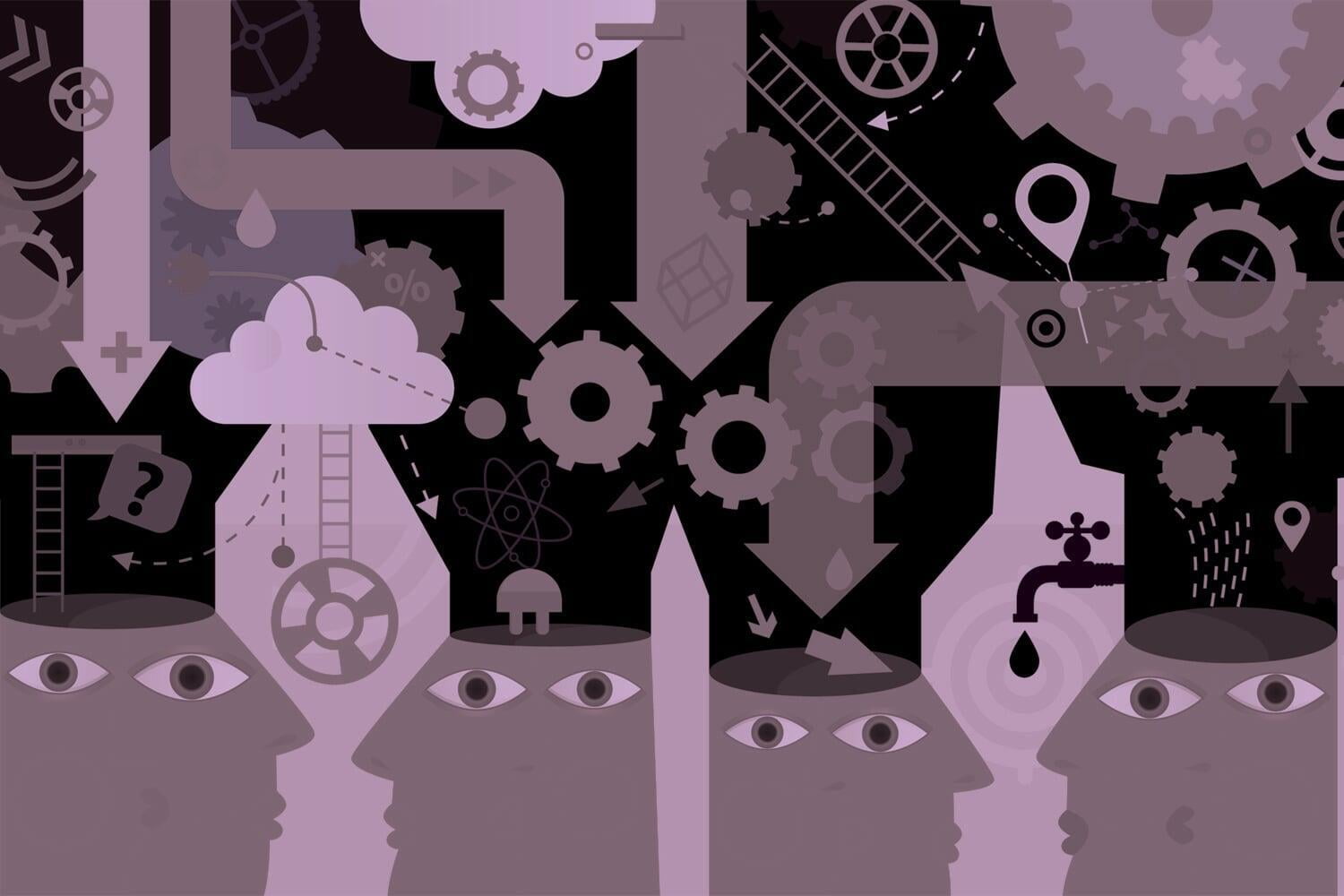
The Way
In a School for tomorrow, we want to inspire a growth-minded community of inquiry and practice to build a disposition for change, align decision standards, and share in a language for learning that contributes to the progress and wellness of all. This enables all to grow to become the people they need to be and live well in relationships built by earning their places through asking the question: where do I fit in?
In a School for tomorrow. we want to inspire a growth-minded community of inquiry and practice to build a disposition for change, align decisions standards, and share in a language for learning that contribute to the progress and wellness of all. This enables all to grow to become the people they need to be and to live well in relationships built by earning their places through asking the question: where do I fit in?

THE REASON FOR SCHOOL
The character, competency and wellness of the whole person is why we do school; they sit at the heart of the culture of a School for tomorrow.
The development of whole young people of character who wrestle with their own sense of who they should be (realisation) and what people expect of them (replication) in order to belong fully to their civic institutions, fulfil their potential, and live with the integrity of a set of beliefs about what is good and right is the most fundamental reason for any school to exist. It is the purpose of school. The inner wrestling of realisation and replication is how emerging adults try to balance their ongoing understanding of who they might become and who they ought to be: We believe that students learn about character through both of these sometimes competing and sometimes complementary processes of realisation and replication, and (at the same time) try to locate and express their voices in their emerging adolescence and adulthood. This is the foundation of an understanding of how we educate for character and all associated practice flows from this.
The journey from ‘me’ to ‘you’ to’ ‘us’ is the most important lesson in a School for tomorrow. It is the ongoing story of learning servanthood. Over the past decade we have assembled testimony from educators in our research and consulting work that warrants respect for a perspective that speaks of the best adults as those who emerge from the self-centredness of childhood into an adulthood that is focused on serving others. At the same time, we keep hearing that the best schools should and do shape their education according to this inherent norm of the development of a disposition towards servanthood. This is particularly important when we consider how we might best measure both the development of character, competency and wellness, and also the quality and consistency of an education designed with these in mind.
“The culture work that sits at the heart of a School for tomorrow. is the articulation and application of school’s whole program of education to build capacity in character and competency. We see this in the development of rigour in evidence-based and research driven learning, the richness in relationships and the cultural capital that arises from them, the strategic depth and distribution of leadership, and the performance that arises from the shared work of the community of inquiry and practice.”
Dr Philip SA Cummins and Bradley Adams
THE CORRIDORS WE WALK TOGETHER
There are six corridors along which we might walk to develop an understanding of 21C character and competency. We believe that six corridors form the essential knowledge architecture of 21C character education. Through them, we can track (in the first instance) the realisation of graduate outcomes in key qualities and competencies grounded in the four integrated dimensions of knowledge, skills, character, and learning habits:
- A good person of integrity who exercises strong and positive character
- A future builder who uses communication competency to navigate and interpret complexity
- A continuous learner and unlearner who is focused on growth has mastery of change readiness
- A solution architect whose direction is revealed by their use of creative and critical thinking
- A responsible citizen who balances the competing demands of local, regional and global communities with perspective
- A team creator who demonstrates relationality most tangibly through collaboration
The development of the whole person within these corridors of The Pathway to Excellence relies on most significantly on relationship. The quality of learning for character, competency and wellness in a school is largely the product of both specific learning relationships of character apprenticeship in which competency is crafted, and also the way that those relationships bring together all learners in a community of inquiry and practice that is sharply focused on improving delivery of the school’s graduate outcomes.We see character apprenticeship as a progression from articulation to reflection to exploration as a novice, then from modelling to coaching to scaffolding as an expert. It is a strong and yet non-judgmental way of explaining how a student learns about character in relationship with others. Our model of character apprenticeship emphasises the importance of teaching and leading others on the road to mastery of character competency as a feature of character education itself. In other words, there must be a deliberate pedagogical shift in the power dynamic of the learning relationship as the expert hands over the opportunity to teach others to those who were once their novices and are now experts in their own right. We also think that the movement from novice to expert is not necessarily linear, nor does it preclude a learner being both simultaneously. We see from the evidence in schools globally that many supposed experts still regard themselves as being learners who are also benefiting from being in relationship with those whom they consider to be greater experts.
THE GROWTH OF THE COMMUNITY OF INQUIRY AND PRACTICE
The authentic culture of a School for tomorrow. can be traced back to a shared disposition to ask questions that challenge the status quo, develop answers that reveal a shared language of learning, and the capacity to define a strategy that is singularly focused on improving outcomes for more learners who have the adaptive expertise and self-efficacy to thrive in their world. It requires all to be inspired by a growth-minded culture of continuous learning and change. And, as we have just seen, we do this together, as a community who relate well to each other in pursuit of our shared goals.
The student community of inquiry and practice is typically focused on relationality. We believe that students currently reveal themselves to be strong practitioners in at least three ways.
- Students are intentional, reflective, and engaged in the whole work of a school. By and large, the students who participated in this exercise show an unusual degree of reflective capacity. They show a high degree of character literacy. Agency is important to them.
- Students are relational. So much of student character learning is situated learning – forged through the vital relationships provided by their peers as well as their teachers in the school environment. This situated learning happens everywhere in the school. It happens largely in the social influences and interactions of the school, more so than in formal direct instruction or formal programs.
- Students have their own important situated community of inquiry and practice. Students in their schools participate in a community of inquiry and practice in character development. As the evidence makes abundantly clear, within the school environment, they rely on each other and indeed need one another to bear witness, to practice and to try out.
Character development in students is intimately tied to processes of maturity and identity formation. While this is not a novel observation, it is important to remind ourselves that the values and character strengths the students tended to identify and experience are tied to the processes of maturity and identity formation. Further, this may be a valuable lens by which to understand how students engage with character education, and how they reflect on and direct their own character development.
If a growth mindset, a focus on performance, and change readiness is what we expect of our students, we should expect this of ourselves as educators. The teacher community of inquiry and practice works best when directed towards collaborative professionalism.
We believe that teachers currently reveal themselves to be stronger as educators for character, competency and wellness when they perform their roles in at least three ways.
- Character educators are intentional, reflective, and engaged in the whole work of a school. Expert teachers think deeply about their vocation as educators for character, especially of boys, and are able to articulate their purpose and approach. They are also able to identify the core character strengths and values they seek to nurture in their students. These are most often specific to individual teachers, and they show a range of robust engagement with what matters in the character development of their students. These teachers recognise that character education happens all the time, anywhere and all the time across their professional responsibilities and multiple presences in the school.
- Character educators are relational. They most often refer to their relational connection to students as the richest pathway for their impact as educators for character. They are able to describe how this relationship building, while an end in itself, is always used to engage them in their character development. They stress the importance of this relational connectedness – deploying a range of relational gestures, role modelling positive character traits, and being and being seen as authentic – as especially powerful and impactful for boys. This relational connectedness is not vague and mysterious; these teachers see it as a practical skill. So much of this involves a high degree of situational judgment.
- The most effective educators are organised and evidence-based in their approach to an education for character, competency and wellness. They are able to identify, describe and evaluate specific practices for pedagogy, curriculum design and classroom management that they considered to be especially effective for growth of their students’ character, competencies and wellness. They see shaping the culture of their classroom – routines and norms of the everyday teaching environment – as impactful. They are able to identify many forms of assessment, especially in the realm of informal and formative assessment, that could be used to provide feedback. Very few think that learning in character education cannot be ‘measured’ or evaluated in authentic and appropriate ways but most are not yet confident in how to do this.
Yet, many educators largely operate as sole practitioners currently. Generally speaking, these teachers have become good at what they do through reflection on their own maturing practice and teaching, and through the influence of other exemplary colleagues and leaders. A minority draw on the ethos of the school, on the explicit programs, or the strategic emphasis on aspects of a whole education including character, competency, and wellness. For some teachers in some of these schools, these are powerful. In its current state in schools, there is a hidden and tacit world of professional expertise in character education that needs to be made explicit. There needs to be an organised, research-driven and evidence-based teacher community of inquiry and practice at the centre of an education for character, competency and wellness in a School for tomorrow.

THE PURPOSE OF SCHOOL
Character is why we do school. The development of whole young people of character who wrestle with their own sense of who they should be (realisation) and what people expect of them (replication) in order to belong fully to their civic institutions, fulfil their potential, and live with the integrity of a set of beliefs about what is good and right is the most fundamental reason for any school to exist...

THE POWER OF RELATIONSHIP
Character development relies on relationship. The quality of character learning in a school is largely the product of both specific learning relationships of character apprenticeship in which competency is crafted, and also the way that those relationships bring together all learners in a community of inquiry and practice that is sharply focused on improving delivery of the school’s graduate outcomes...

REALISATION AND REPLICATION
The inner wrestling of realisation and replication is how emerging adults try to balance their ongoing understanding of who they might become and who they ought to be. We believe that students learn about character through both of these sometimes competing and sometimes complementary processes of realisation and replication, and (at the same time) try to locate and express their voices in their emerging adolescence and adulthood...

CHARACTER APPRENTICESHIP
Character competency is learned best through apprenticeship. We believe that a flexible adaptation of the cognitive apprenticeship model should be the basis of an overarching pedagogy for character education. We see character apprenticeship as a progression from articulation to reflection to exploration as a novice, then from modelling to coaching to scaffolding as an expert. It is a strong yet non-judgmental way of explaining how a student learns about character in relationship with others...

THE JOURNEY FROM 'ME' TO 'US'
The journey from ‘me’ to ‘us’ is the story of learning servanthood. We believe that the past decade of testimony from educators in our research and consulting work warrants respect for language that speaks of the best adults as those who emerge from the self-centredness of childhood into an adulthood that is focused on serving others. At the same time, we keep hearing that the best schools should and do shape their education according to this inherent norm of the development of a disposition towards servanthood...

RELATIONALITY IN THE STUDENT COMMUNITY OF INQUIRY AND PRACTICE
The student community of inquiry and practice is typically focused on relationality. We believe that students currently reveal themselves to be strong character education practitioners in at least four ways: students are intentional, reflective, and engaged in the whole work of a school; students are relational; students have their own important situated community of inquiry and practice; and character development in students is intimately tied to processes of maturity and identity formation...

UNDERSTANDING 21C CHARACTER AND COMPETENCY
There are six corridors along which we might walk to develop an understanding of 21C character and competency. We believe that these six corridors form the essential knowledge architecture of 21C character education. Through them, we can track (in the first instance) the realisation of graduate outcomes in key qualities and competencies grounded in the four integrated dimensions of knowledge, skills, character, and learning habits...

PROFESSIONALISM IN THE TEACHER COMMUNITY OF INQUIRY AND PRACTICE
The teacher community of inquiry and practice works best when directed towards collaborative professionalism. We believe that teachers currently reveal themselves to be strong character educators in the following four ways: character educators are intentional, reflective, and engaged in the whole work of a school; character educators are relational; the most effective character educators are organised and evidence-based in approach; and character educators largely operate as sole practitioners...